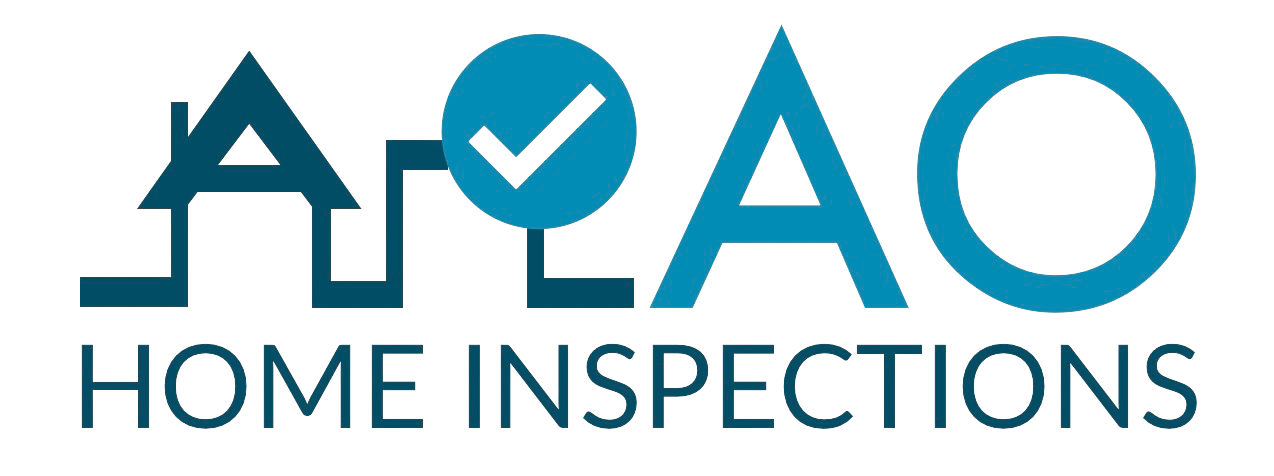Imagine embarking on a journey to sell your home, only to encounter hidden obstacles that could derail your plans. Picture facing the uncertainty of structural surprises or outdated systems that might spook potential buyers, leaving you in a quandary about how to proceed. This scenario often leads sellers into a labyrinth of stress and compromise, with the spectre of extended listing periods and diminished returns looming large. It underscores the urgency for an innovative approach that equips sellers with a detailed blueprint of their home’s true condition, ensuring they step into the market with confidence and clarity.
Meet the Pre-Listing Inspection
A pre-listing home inspection can do just that. Think of it as a sort of “dress rehearsal” for the official buyer’s inspection. Sellers have a professional home inspector closely examine their house before putting that “For Sale” sign on the front lawn. The inspector then provides the full scoop on what needs fixing.
Pre-Listing Inspection: What You Need to Know
Getting a pre-inspection have become increasingly popular in recent years, particularly in competitive real estate markets. A pre-listing inspection is a comprehensive examination of a property by a professional home inspector before it is listed for sale. The purpose of this inspection is to identify any potential issues or defects that could affect the sale of the property.
Pre-listing inspections are typically paid for by the seller or listing agent and are conducted prior to listing the home for sale. The inspection report provides a detailed assessment of the condition of the property, including any defects or issues that could impact the sale. This information can be used by the seller real estate agent to address any necessary repairs or improvements prior to listing the property, which can help to increase the home’s value and appeal to potential buyers.
Key Takeaways
- Pre-listing inspections are comprehensive examinations of a property conducted before it is listed for sale.
- Sellers can use the information from pre-listing inspections to address any necessary repairs or improvements prior to listing the property, which can help to increase its value and appeal to potential buyers.
- Preparing your home for a pre-listing inspection is similar to preparing for a regular home inspection, and involves ensuring the home is clean, tidy, and all areas are accessible.
Understanding Pre-Listing Inspections
When it comes to selling a home, having a pre-listing inspection can be a valuable tool for both the seller and the buyer. A pre-listing inspection is a type of home inspection that is done before the house is listed for sale. This inspection can help the seller be more knowledgeable about their home, choose what they want to fix, and make the process easier for everyone involved.
Benefits for Sellers
One of the most significant benefits of getting a pre-inspection is that it can help sellers identify and fix any potential problems before listing the home. This can lead to a smoother transaction process and can also help the seller get a better price for their home. Additionally, getting a pre-inspection can give sellers peace of mind knowing that their home is in good condition and that there will be no surprises during the transaction process.
What Inspectors Look For
During a pre-listing inspection, inspectors will typically look for any potential issues with major systems such as the roof, HVAC, plumbing, and electrical systems. They will also inspect the foundation, walls, and ceilings for any signs of damage or wear and tear. Inspectors will provide an inspection report that outlines any issues found during the inspection.
Difference From Standard Home Inspections
The main difference between a pre-listing inspection and a standard home inspection is the timing. A pre-listing inspection is done before the home is listed for sale, while a standard home inspection is typically done after an offer has been made on the home. Another difference is that a pre-listing inspection is typically paid for by the seller, while a standard home inspection is paid for by the buyer.
Consider on getting a pre-inspection? Reach out to AO Home Inspections for experienced professionals who can ensure your property is in top condition before it hits the market. A thorough pre-listing inspection can smooth the path to a successful sale, offering peace of mind and potentially enhancing your property’s value.
Preparing Your Home for Inspection
When preparing a home for inspection, there are several things a seller can do to ensure that the process goes smoothly. Addressing major defects, making minor repairs and improvements, and getting a pre inspection checklist are all important steps in preparing a home for inspection.
Addressing Major Defects
Major defects, such as a leaky roof or a foundation issue, can be a major red flag for potential buyers. It is important to address these issues before listing a home to avoid any surprises during the inspection process. Repairs can be costly, but they are necessary to ensure that a home is in good condition and ready for sale.
Minor Repairs and Improvements
Minor repairs and improvements can also make a big difference in how a home is perceived by potential buyers. Simple things like fixing leaky faucets, replacing broken light fixtures, and cleaning gutters can make a home look well-maintained and cared for. Making these repairs yourself can save money and improve the overall appearance of a home.
Pre-Listing Home Inspection Checklist
Creating a pre sale home inspection checklist can help sellers identify any potential issues before the official inspection. This can help avoid any surprises and give sellers time to make necessary repairs. The checklist should include items like checking for leaks, testing smoke detectors, and ensuring that all appliances are in good working order.
Dealing With Inspection Findings
After the pre-sale inspection is completed, the seller will receive a report detailing any issues found during the inspection. It is important to handle these pre-inspection findings with care and transparency to ensure a smooth transaction.
Disclosure and Transparency
The seller should disclose all inspection findings to potential buyers. This builds trust and transparency between the seller and the buyer. It also helps to avoid any potential legal issues down the road. The seller should provide the full inspection report to potential buyers and be honest about any issues found.
Negotiating With Potential Buyers
If the inspection report reveals issues with the property, potential buyers may ask for a price reduction or repairs to be made. The seller should be prepared to negotiate with potential buyers. It is important to keep in mind that buyers want to purchase a property that is in good condition. The seller should consider the cost of repairs and negotiate with the buyer accordingly.
When to Make Repairs
The seller should consider making repairs before listing the property. This can help to avoid any issues during the negotiation process. If repairs are not made before listing the property, the seller should be prepared to negotiate with potential buyers. The seller should also consider the cost of repairs and whether or not it is worth making them.
In summary, handling inspection findings with care and transparency is crucial to a successful pre-sale inspection. The seller should disclose all findings to potential buyers, be prepared to negotiate, and consider repair costs before listing the property.
Impact on the Sales Process of Pre Inspection Report
A presale home inspection can have a significant impact on the sales process. By identifying and addressing issues early on, sellers can set themselves up for a smoother and faster sale. In this section, we will discuss three key ways that a presale home inspection can impact the sales process.
Time to Sell and Marketing
One of the main benefits of a pre-listing inspection is that it can help sellers sell their homes faster. By identifying and addressing issues before the home is listed, sellers can avoid delays and complications during the sales process. This can help them attract serious buyers who are ready to make an offer and close the deal quickly.
In addition, a pre inspection can help sellers market their homes more effectively. By highlighting the positive aspects of the home and addressing any issues upfront, sellers can create a more attractive listing that will appeal to a wider range of buyers.
Attracting Serious Buyers
Another way that a pre inspection can impact the sales process is by attracting serious buyers. When buyers see that a home has already been inspected and any issues have been addressed, they are more likely to view the home as a good investment. This can help sellers attract buyers who are willing to pay fair market value and who are serious about making a purchase.
Setting the Right Price
Finally, getting a pre-listing inspection can help sellers set the right price for their homes. By identifying any issues that may affect the value of the home, sellers can adjust their asking price accordingly. This can help them avoid overpricing their homes and missing out on potential buyers, or underpricing their homes and leaving money on the table.
Considering a pre-listing inspection for your property before it goes on the market? Reach out to AO Home Inspections to discover how we can assist you.
Legal and Financial Considerations
When it comes to pre-listing inspections, there are several legal and financial considerations that sellers should be aware of. This section will cover some of the most important considerations, including understanding disclosure laws, costs and return on investment, and the involvement of real estate professionals.
Understanding Disclosure Laws
One of the most important legal considerations for sellers is understanding disclosure laws in their state. In many states, sellers are required to disclose any known defects or issues with the property to potential buyers. Failure to do so can result in legal action against the seller. A pre-listing inspection can help sellers identify any issues that need to be disclosed, which can help protect them from legal liability down the road.
Costs and Return on Investment
Another important consideration for sellers is the cost of a pre-listing inspection and the potential return on investment. According to the American Society of Home Inspectors, the average pre-listing inspection costs between $300 and $600 [1]. While this may seem like a significant expense, it can be well worth it in the long run. By identifying any issues with the property upfront, sellers can make repairs or adjustments that can increase the value of the home and make it more attractive to potential buyers.
Involvement of Pre-Listing Home Inspector
Finally, sellers should consider the involvement of home inspector in the pre-listing inspection process. Selecting the right pre-listing home inspector is crucial for a thorough evaluation of your property before it goes on the market. Opt for an inspector with a solid track record, like those at AO Home Inspections, who bring a wealth of experience and certification to ensure your home is ready for sale. This careful choice supports informed decision-making, grounded in understanding the legal, financial, and professional landscape of pre-listing inspections, ultimately setting the stage for a successful home sale process.
In summary, sellers should be aware of the legal and financial considerations of pre-listing inspections. Understanding disclosure laws, costs and return on investment, and the involvement of real estate professionals can help sellers make informed decisions about whether a pre-listing inspection is right for them.
Considering an pre-listing inspection? Reach out to AO Home Inspections for experienced professionals who can ensure your property is in top condition before it hits the market. A thorough pre-listing inspection can smooth the path to a successful sale, offering peace of mind and potentially enhancing your property’s value.
FAQs About getting a Pre Inspection
What are the benefits of conducting a pre-listing home inspection (pre-inspection)?
Conducting a pre-listing home inspection helps identify any issues prior to putting the property on the market. This proactive step enables the seller to address necessary repairs and avoid surprises during the home selling process. Moreover, getting a pre inspection can empower the seller with more control over repairs needed and potentially bolster their negotiating position, especially in terms of the listing price.
How much can I expect to pay for a pre-listing home inspection?
The cost of a pre-listing home inspection varies based on location and property size. On average, you might spend around $340, though prices can range from $200 to $500. A qualified inspector may charge differently based on the complexity of inspecting the home’s major systems.
What should be included in a pre-listing inspection checklist/report?
A comprehensive pre-listing inspection report should cover an examination of the property’s foundation, roof (potentially including the need for a new roof), plumbing, electrical systems, HVAC, and appliances. Additionally, a safety check is crucial, encompassing elements like smoke detectors to ensure full disclosure of the property’s condition.
How does a pre-listing inspection differ from a buyer’s home inspection?
A pre-listing inspection is initiated by the seller before marketing the property, giving them an opportunity for home pre-inspected status. In contrast, a buyer’s inspection occurs post-offer, typically as part of the home buying process and often as a home inspection contingency in the purchase agreement. Both inspections have similar scopes but differ in timing and control over needed repairs.
Can a pre-listing inspection affect the sale price of my home?
Yes, a pre-listing inspection can influence your home’s sale price. Discovering and addressing significant problems can justify a higher asking price, while unresolved issues might lead to a reduced price. However, it generally provides more leverage and full disclosure, possibly attracting more money from prospective buyers.
What steps should be taken before scheduling a pre-listing home inspection?
Before scheduling, ensure your property is clean and well-maintained, which might involve ticking off items on your to-do list. Gather relevant documentation, such as permits and warranties, which can be crucial for expert advice during the inspection. Being available to answer the inspector’s questions can also facilitate a thorough and effective inspection.



